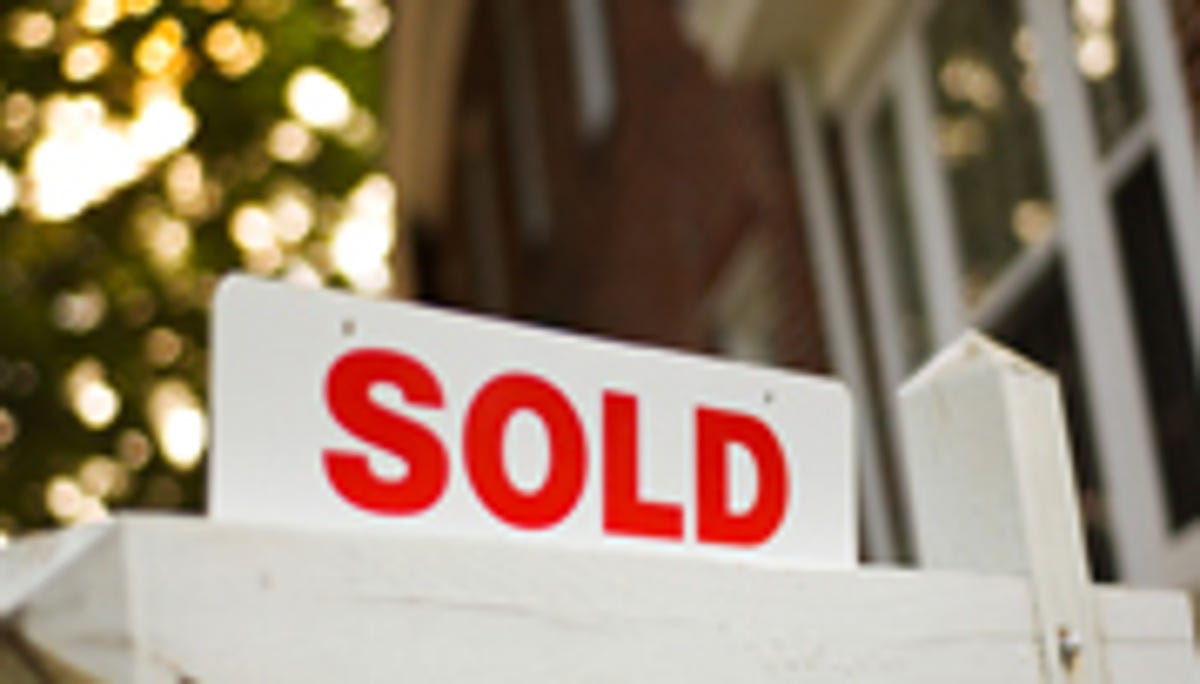World
The proposed EU fiscal rules fall short of the changes we need

The opinions expressed in this article are those of the author and do not represent in any way the editorial position of Euronews.
The extraordinary nature of the pandemic led to unprecedented acts; today, similarly, the impending threat of the climate crisis on our planet, and its consequences on the very foundations of our society, require responses that rise to the occasion, Eleonora Volpe writes.
On 11 December, the European Economic and Social Committee met to discuss the proposal for new fiscal rules for the EU.
The next day, we met, together with Belgian and European trade unions, in a demonstration against the dangerous outcome of their proposal.
As More than Enough, a coalition of social organisations, unions, anti-poverty and environmental NGOs, we are profoundly worried about the unjustifiably restricting nature of the proposed text.
It is high time for European finance ministers to balance objectives of debt sustainability with the greatest form of instability that we face today: the climate and environmental crisis.
The journey towards climate neutrality requires a profound reconsideration of our economies and societies. We need significant investments by national governments in a transition that is truly green and truly socially just.
This should not be at odds with fiscal obligations of how much a country can spend for its citizens’ wellbeing; on the contrary, fiscal rules that are fit for purpose can be catalysts for objectives of climate and social justice.
The proposed fiscal rules fall short of the changes we need. A 20th-century-old obsession with debt reduction, at a moment when humanity faces unprecedented climate, environmental and social threats is irresponsible and dangerous, as it risks restricting the means with which national governments will be able to address the coming challenges.
There will be no debt sustainability without a serious commitment to a sustainable future.
We need responses that rise to the occasion
Let’s take a step back. Amidst the COVID-19 crisis, at a time when national governments had to respond promptly to the global health emergency, the fiscal rules were suspended temporarily until 2024.
The temporary suspension allowed greater flexibility to Member States to address the economic challenges ahead and avoid the constraining nature of the fiscal rules leading to an even more severe economic downturn.
Even before the onset of COVID-19, these rules had been the subject of much debate: their arbitrary nature constrained member states’ spending, often hindering national governments from effectively and promptly addressing economic crises and downturns and forcing cuts in social spending (without being effective in decreasing debt levels).
Today we are living in a parallel situation.
The extraordinary nature of the pandemic led to unprecedented acts; today, similarly, the impending threat of the climate crisis on our planet, and its consequences on the very foundations of our society, require responses that rise to the occasion.
The temporary suspension of the fiscal rules represented the perfect opportunity for their profound reconsideration and the chance for a paradigm shift from an economy that has measured its prosperity only in terms of a growth rate and its stability only in terms of a debt ratio.
The resulting environmental and social scarring is where we now start, fighting for an economy of social well-being and environmental prosperity, with no compromise between the two.
One-size-fits-all approach doesn’t work
The seriousness of the situation is well known in EU headquarters: according to the European Commission’s own estimates, the EU’s current underspending in its 2050 climate targets is staggering, ranging between €11,7 and €16,3 billion.
This adds to economic and social scarring coming from years of pursuing harsh austerity, such as cuts in social spending, that have hit the most vulnerable Europeans – youth, workers, women, and minorities, leaving them poorer and more vulnerable.
Failing to address this with the right tools and means will only contribute to making our economies more vulnerable to climate impacts and our societies more fragmented and polarised.
Yet, the text that is being discussed falls short of the transformative change we need.
By mostly focusing on yearly objectives for debt reduction, it neglects the need for proper fiscal space for public investments that are essential to foster a fair green transition and overlooks the highly beneficial effect that quality public investments (especially in climate) have on the overall economy (and as such repayment of debt).
By surrendering to the pressures of countries like Germany, the proposal lands on a one-size-fits-all agreement that will mostly affect those countries already grappling with the aftermath of austerity, the COVID-19 crisis and the energy crisis.
Overall, the proposal would unjustifiably restrict investments that are urgently needed for a just transition. By imposing a strict debt reduction, national governments would not be allowed enough fiscal leeway to invest in either the green or social dimension, and paradoxically putting the two priorities in competition.
The looming possibility of a bad deal
Unless these rules are improved significantly, they’re not going to help keep debts in check in the long term.
They’re going to stand in the way of most member states hitting their climate, jobs, and social targets.
What European citizens really need is a deal that shows we’ve learned from the past and gives governments the tools to actively invest in meeting the EU’s climate, social, and economic goals.
Rushing a deal now would leave us unprepared for the challenges of the next decade.
Finance ministers must consider the broader plea coming from civil society. More than Enough, together with many other civil society organisations in Belgium, is calling for fiscal rules that empower national governments to make the necessary structural investments for a prosperous and resilient future.
Let us not settle for a hurried agreement that locks us into insufficient fiscal capacity, impeding the realisation of climate, employment, and social targets. We cannot allow the return of austerity through the back door.
Eleonora Volpe is Finance Officer at the European Environmental Bureau (EEB).
At Euronews, we believe all views matter. Contact us at view@euronews.com to send pitches or submissions and be part of the conversation.

World
Girls5eva Cancelled at Netflix

ad
World
Christmas trees in Germany were decorated with apples instead of ornaments in the 1600s for 'Adam and Eve Day'

The choosing and decorating of a Christmas tree to display during the holiday season is a beloved tradition with a long history.
Today, Christmas trees are often decorated with an array of ornaments, including glass ones, homemade creations, candy canes, tinsel and sparkling lights, but that was not always the case. There was a time in history when Christmas trees were adorned with edible items, including apples, to commemorate the feast of Adam and Eve on Dec. 24.
Germany is credited with starting the tradition of the Christmas tree, according to History.com, with 16th century records telling of Christians bringing trees into their homes for the holiday.
Christmas trees were not always decorated with a large array of ornaments. During the early days of the Christmas tree, they were instead covered in red apples. (iStock)
PRESIDENT FRANKLIN D. ROOSEVELT SOLD CHRISTMAS TREES TO LOCAL RESIDENTS ON HIS OWN ESTATE IN THE 1930S
The Christmas tree has evolved over time, especially in the way in which it is decorated.
In the 1600s, it was typical for a Christmas tree to be decorated using apples, according to the National Christmas Tree Association.
The feast of Adam and Eve, held on Dec. 24, was honored by a “Paradise Play,” which told the story of Adam and Eve.
The play featured a “Paradise Tree,” according to the website, The Catholic Company, which was decorated with apples.

Apples were placed on the “Paradise Tree” used in the play telling the story of Adam and Eve. (iStock)
HOW TO SAY ‘MERRY CHRISTMAS’ IN 10 LANGUAGES TO FRIENDS AROUND THE WORLD
It was popular in Germany to set up “Paradise Trees” in homes, according to several sources, including Britannica and CatholicProfiles.org.
Then, in the 1700s, evergreen tips were hung from the ceilings of homes, also decorated with apples as well as gilded nuts and red paper strips, according to the National Christmas Tree Association.
It was not until the 1800s that the Christmas tree made its way to the United States by German settlers, according to the source.

Today, families cover their Christmas trees in a variety of festive ornaments. (iStock)
At this time, Christmas trees were not the large displays they are now, and they simply sat atop a table, per the National Christmas Tree Association.
Then, in the mid-1800s, trees began to sell commercially in the U.S. By the late 1800s, glass ornaments became a common decoration for the Christmas tree, according to the National Christmas Tree Association.
Today, every family has their own traditions and preferences when it comes to decorating the Christmas tree.
Some go with a very complimentary design, sticking to a single or couple of colors. Others opt for a mix-matched arrangement, combining homemade ornaments with more classic ones, as well as colorful lights, ribbon and more.
World
Photos: Armenian Christians in Jerusalem’s Old City feel walls closing in

As Israel’s war on Gaza rages and Israeli attacks on people in the occupied West Bank continue, Armenian residents of the Old City of Jerusalem are fighting a different battle – quieter, they say, but no less existential.
One of the oldest communities in Jerusalem, the Armenians have lived in the Old City for more than 1,500 years, centred around the Armenian convent.
Now, the small Christian community has begun to fracture under pressure from forces they say threaten them and the multifaith character of the Old City – from Jewish settlers who jeer at clergymen on their way to prayer to a land deal threatening to turn a quarter of their land into a luxury hotel.
Chasms have emerged between the Armenian Patriarchate and the mainly secular community, whose members worry the church is not equipped to protect their dwindling population and embattled convent.
In the Armenian Quarter is Save the Arq’s headquarters, a structure with reinforced plywood walls hung with ancient maps inhabited by Armenians who are there to protest what they see as an illegal land grab by a real estate developer.
The land under threat is where the community holds events and also includes parts of the patriarchate itself.

After years of the patriarchate refusing to sell any of its land, Armenian priest Baret Yeretsian secretly “leased” the lot in 2021 for up to 98 years to Xana Capital, a company registered just before the agreement was signed.
Xana turned more than half the shares to a local businessman, George Warwar, who has been involved in various criminal offences.
Community members were outraged.
The priest fled the country and the patriarchate cancelled the deal in October, but Xana objected and the contract is now in mediation.
Xana has sent armed men to the lot, the activists say, attacking people, including clergy, with pepper spray and batons.
The activists say Warwar has the backing of a prominent settler organisation seeking to expand the Jewish presence in Jerusalem’s Old City.

The organisation, Ateret Cohanim, is behind several controversial land acquisitions in the Old City, and its leaders were photographed with Warwar and Xana Capital owner Danny Rothman, also known as Danny Rubinstein, in December 2023. Ateret Cohanim denied any connection to the land deal.
Activists filed suit against the patriarchate in February, seeking to have the deal declared void and the land to belong to the community in perpetuity.
The patriarchate refused, saying it owns the land.
Armenians began arriving in the Old City as early as the fourth century with a large wave arriving in the early 20th century, fleeing the Ottoman Empire. They have the same status as Palestinians in Israeli-occupied East Jerusalem – residents but not citizens, effectively stateless.

Today, the newcomers are mainly boys who arrive from Armenia to live and study in the convent although many drop out. Clergy say that’s partially because attacks against Christians have increased, leaving the Armenians – whose convent is closest to the Jewish Quarter and is along a popular route to the Western Wall – vulnerable.
Father Aghan Gogchyan, the patriarchate’s chancellor, said he’s regularly attacked by groups of Jewish nationalists.
The Rossing Center, which tracks anti-Christian attacks in the Holy Land, documented about 20 attacks on Armenian people and property and church properties in 2023, many involving ultranationalist Jewish settlers spitting at Armenian clergy or graffiti reading “Death to Christians” scrawled on the quarter’s walls.
-

 Business1 week ago
Business1 week agoOpenAI's controversial Sora is finally launching today. Will it truly disrupt Hollywood?
-

 Politics5 days ago
Politics5 days agoCanadian premier threatens to cut off energy imports to US if Trump imposes tariff on country
-
/cdn.vox-cdn.com/uploads/chorus_asset/file/25782636/247422_ChatGPT_anniversary_CVirginia.jpg)
/cdn.vox-cdn.com/uploads/chorus_asset/file/25782636/247422_ChatGPT_anniversary_CVirginia.jpg) Technology6 days ago
Technology6 days agoInside the launch — and future — of ChatGPT
-
/cdn.vox-cdn.com/uploads/chorus_asset/file/25789444/1258459915.jpg)
/cdn.vox-cdn.com/uploads/chorus_asset/file/25789444/1258459915.jpg) Technology4 days ago
Technology4 days agoOpenAI cofounder Ilya Sutskever says the way AI is built is about to change
-

 Politics4 days ago
Politics4 days agoU.S. Supreme Court will decide if oil industry may sue to block California's zero-emissions goal
-
/cdn.vox-cdn.com/uploads/chorus_asset/file/25546252/STK169_Mark_Zuckerburg_CVIRGINIA_D.jpg)
/cdn.vox-cdn.com/uploads/chorus_asset/file/25546252/STK169_Mark_Zuckerburg_CVIRGINIA_D.jpg) Technology5 days ago
Technology5 days agoMeta asks the US government to block OpenAI’s switch to a for-profit
-

 Politics6 days ago
Politics6 days agoConservative group debuts major ad buy in key senators' states as 'soft appeal' for Hegseth, Gabbard, Patel
-

 Business3 days ago
Business3 days agoFreddie Freeman's World Series walk-off grand slam baseball sells at auction for $1.56 million



















